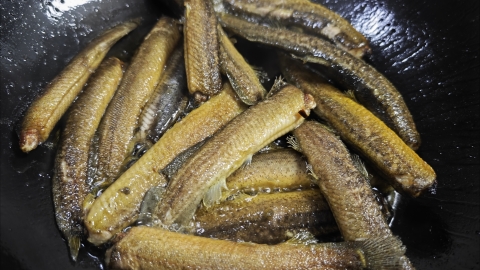Can people with high uric acid levels eat loach, and how to consume it more safely?
Generally speaking, individuals with high uric acid levels can consume loach, but it is safer to do so in moderation, choose appropriate cooking methods, avoid high-purine ingredients, pair with low-purine foods, and drink plenty of water. If any abnormalities occur, prompt medical consultation is recommended. Detailed explanations are as follows:

1. Consume in moderation: Individuals with high uric acid should control their intake of loach and avoid excessive consumption. It is recommended that each serving should not exceed 100 grams, and consumption should not exceed 2–3 times per week. Eating small amounts can reduce purine intake and lower the risk of elevated uric acid levels.
2. Choose appropriate cooking methods: Use light cooking methods such as steaming or making soup, and avoid high-fat methods such as frying or braising. Steaming and boiling help preserve the nutritional content of loach while reducing additional fats and seasonings, thus easing the burden on the kidneys.
3. Avoid high-purine ingredients: When cooking loach, avoid using high-purine ingredients such as organ meats, seafood, and concentrated meat broths. These ingredients increase the purine content of the meal, further elevating blood uric acid levels. Low-purine vegetables such as cucumber, tomato, and spinach can be chosen as side dishes.
4. Pair with low-purine foods: When consuming loach, pair it with some low-purine foods such as leafy vegetables, fruits, and whole grains. These foods are rich in fiber and vitamins, which help promote uric acid excretion and provide balanced nutrition.
5. Drink plenty of water: After eating loach, drink plenty of water to promote uric acid excretion. Drinking at least eight cups of water daily (approximately 2000 mL) can help dilute uric acid in the blood, reduce the formation of uric acid crystals, and prevent gout attacks.
In addition, individuals with high uric acid levels should regularly monitor their uric acid levels after consuming loach to keep track of their health status. If abnormally elevated uric acid levels or symptoms such as joint pain occur, prompt medical attention should be sought and dietary habits adjusted accordingly.







